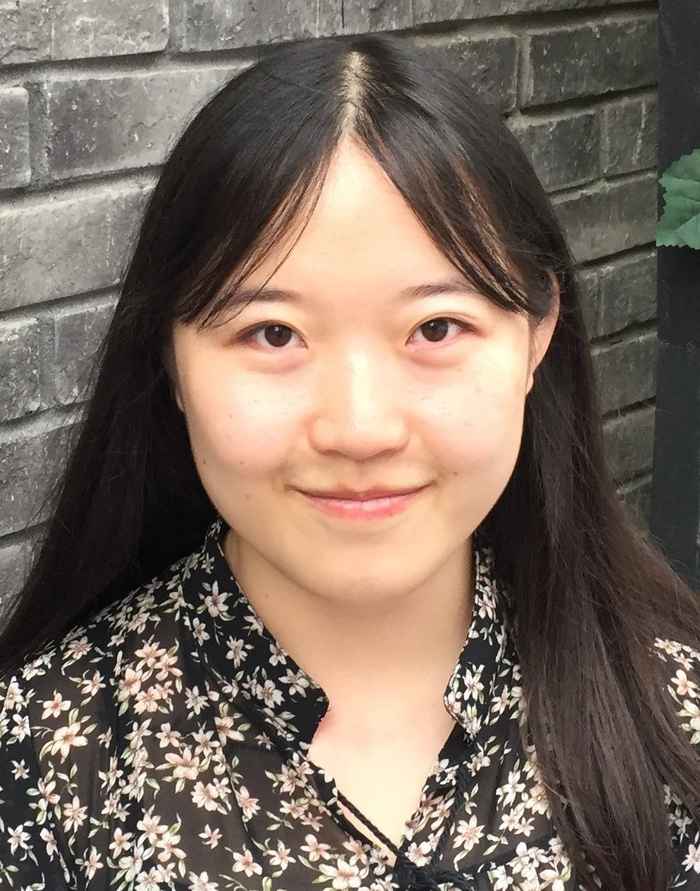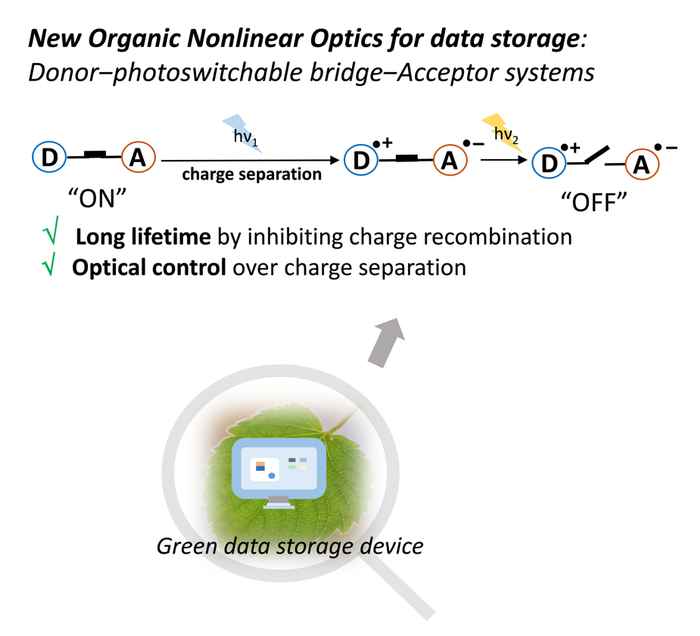NWO XS grant for Minghui Zhou
Exploring new organic nonlinear optical materials for sustainable data storage
3 June 2024

The rapid development of Artifical Intelligence relies heavily on data storage devices, which is a domain facing sustainability challenges. The prevalent use of metals and inorganic materials in current devices is raising environmental concerns, both in their production and disposal. Consequently, there is an urgent need to find affordable and eco-friendly data storage solutions to address this issue. Utilizing organic nonlinear optics for data storage can present significant advantages over traditional inorganic-based counterparts, including eco-friendliness and sustainability.
Due to a relatively low optical response, the potential of current organic nonlinear optics systems for data storage is rather limited. To overcome these limitations, Zhou explores novel materials that feature photoswitchable electron-donor-bridge-acceptor molecules. Integrating such molecules into organic nonlinear optics enables prolonging of the charge separation time, thereby enhancing the optical response.
Notably, the optical response of these newly designed NLOs can be easily modulated with light, promising more efficient and flexible solutions for data storage.
See also
- Minghui Zhou obtains doctorate cum laude (including summary of her thesis)
- Grants for twenty-eight applications within Open Competition ENW-XS
